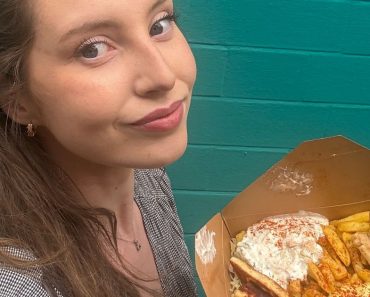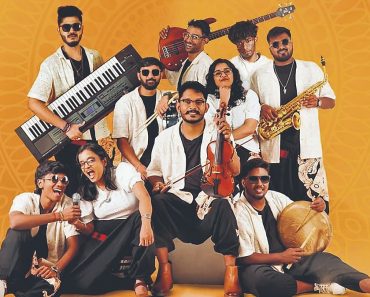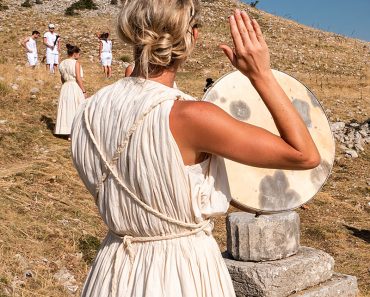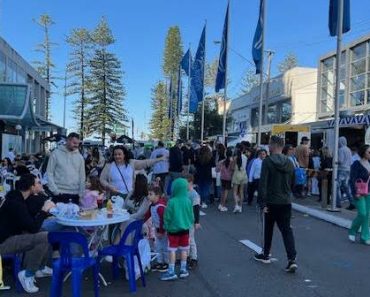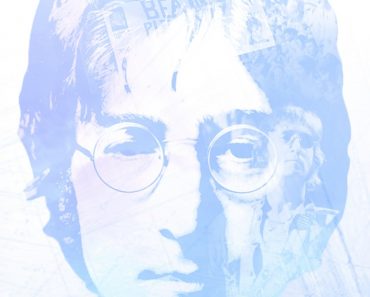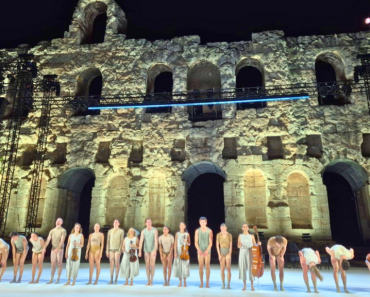When Glasgow band Humour named their debut album Learning Greek, they weren’t just being clever. For frontman Andreas, the title speaks to a real, slow-burning return to his roots. It’s not just about learning the language, it’s about trying to keep hold of something deeper: ancestral memory, family, identity.
What could have been high-minded or self-conscious instead comes out as oddly tender. I caught up with Andreas and guitarist Ross, best friends since they were four, to talk about myth, memory, the Iliad, and why you have to feel the heat of Greece (or the cold of Scotland) to really understand either.
Harvey: Let’s start with the obvious: this album seems tied to Andreas’ personal journey into Greek heritage. Ross, what’s it been like working on something so closely linked to your friend’s identity?
Ross: Me and Andreas have been best friends since we were four years old, so I feel close to a lot of this stuff. It’s just been really nice, not difficult. From a songwriting point of view, we’ve always tried to help explore whatever Andreas wants to say. Me and Jack, when we’re coming up with songs, are thinking about how to bring his lyrics out. His are my favourite lyrics to read and listen to.
We used to give him ideas to start with, but this album felt more natural. Maybe it’s because of the two EPs, maybe something else, but Andreas had more clarity, and the process flowed better.
Harvey: There’s this funny Greco-Roman thing going on; you with Italian heritage, Ross, Andreas with Greek, but you’ve both been born and raised in Scotland. Ever think about that strange cultural triangle?
Ross: Yeah, that’s basically the only reason we were friends in primary school!
Harvey: Andreas, you mentioned once that referencing The Iliad in ‘Memorial’ made you nervous; that it might seem pretentious. Do you still feel that?
Andreas: What I love about those stories is their accessibility. After thousands of years, they’re still immediate and personal. In ‘Memorial’ it’s just a couple saying goodbye. Their child plays with his father’s helmet. It’s poignant, very human.
These would be bedtime stories for me, my brother, and my sister that my dad would tell us, albeit in a more simplified way. We grew up with the Greek myths but it’s not something I read very often as I got older – I hadn’t read any of it since I was a teenager.
It’s difficult to write about this stuff because of the weighty subject matter, to write it in a way that isn’t slightly loaded.
Harvey: So instead of dissecting the myth, you just pulled something real out of it.
Andreas: Yeah, exactly. Our friend Theo Bleke made an amazing EP called Iliad. She references moments from The Iliad and Odyssey but in a really abstracted way, focusing on moments in life that can be releated to now. It’s so interesting and unpretentious, so artfully done.
I tried to do the same; not to make it a comment on the text itself but rather extracting the scene and reimagining it. The way of doing that for me, for us, was masking the subject matter a little behind the catchiness or poppiness of the song and the pace of it. If a song’s too on the nose or too obviously about something, I’ll try and slightly mask it.
Harvey: You grew up in Glasgow with Greek parents. Did that give you a sideways perspective on Scottish culture?
Andreas: Yeah. I feel Scottish, but in Scotland, because of our names, we were never seen as fully Scottish. And in Greece, we’re not fully Greek either. We don’t speak the language perfectly, we’ve got British accents. So you’re always observing. Never quite inside. We’re very culturally British, and there’s that kind of duality.
Harvey: Before the language lessons and this album, do you think you were more disconnected from your roots?
Andreas: As we get older and our family members start to die, I felt the need to keep hold of that, as I’m approaching 30 and life changing in the way that it does. My main connection is through my parents and grandparents, and once they’re gone, I want to still have it, to keep it alive, not just by speaking the language properly, which I’ve never been able to do, but to become more culturally Greek, knowing the history and remembering the stories, not just national history but family history as well.
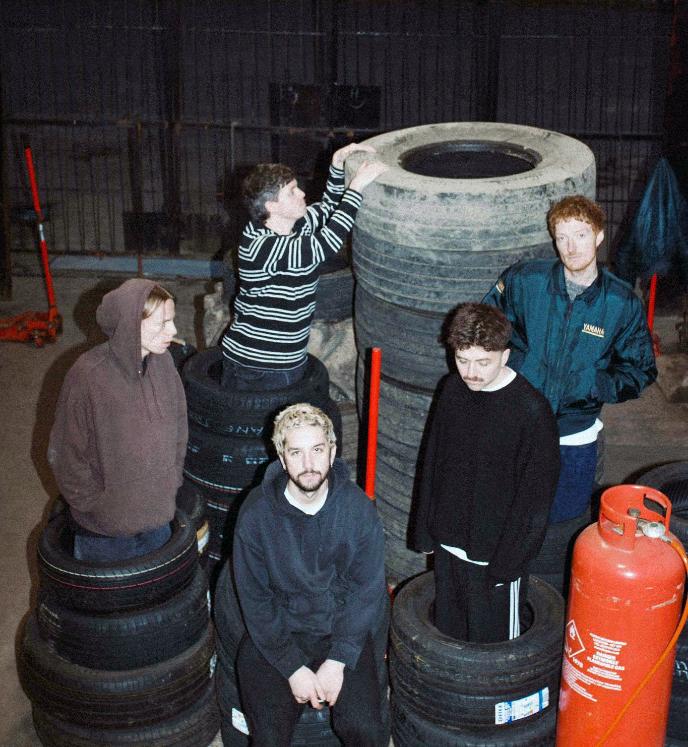
Harvey: You’ve known each other forever. What’s kept the band alive through all that?
Ross: Honestly, we’re not actually massive music people, that’s the funny thing. We didn’t bond over music when we first met but we grew into it together. We’ve only ever played in versions of this band.
Harvey: That’s pretty rare. So when did music actually become part of the friendship?
Ross: Not until high school, really. Before that, we just liked music, went to gigs, shared stuff like any group of mates. It wasn’t foundational.
Andreas: Yeah. In high school it became more active. We’d play guitar together, sing covers – Arctic Monkeys, mostly. But we didn’t plan to be a band long-term.
Harvey: Did your sound get heavier over time, or was it always lurking underneath?
Andreas: It definitely got heavier. At the start we were just playing what everyone else was listening to. It wasn’t even based on our own taste. Even as Humour, it wasn’t as heavy as it is now. That came later.
Harvey: You quote Andreas Embirikos on the album. I looked him up: his life story and novels are wild. He once said, “The only way to grasp the soul of Greece is to become dizzy from its heat.” Do you think that’s true?
Andreas: Yeah, even in a simple way. I only go there intermittently, so I feel the heat when I arrive. It slows you down. It puts you in a meditative state.
And Embirikos was… eccentric. There’s a recording of my dad reading a poem of his on the album. Most of it is us laughing at how lewd and weird it is. But the main character in the poem walks through Athens getting hotter and hotter until he has this epiphany: he needs that heat to experience that light. It’s a metaphor. You’ve got to go through the discomfort to get to the joy.
So if you flipped it: to grasp the soul of Scotland, you need to become dizzy from its cold?
Andreas: Absolutely. Go to the Highlands. Feel the bite of the cold. That’s how you know where you are, that’s the only way to appreciate where you are and how dramatic, how wild it is.
Harvey: Ross, you also said Andreas just looks better in Greece.
Ross: He does. He swims better, walks better. He’s more comfortable there. It’s hard to explain, but he moves differently. He’s just more at home.
Harvey: Have you all been there together?
Ross: Yeah, I’ve been many times with him. The others have too. We wanted to go write this album in Greece but it didn’t work out. Next time, definitely.


